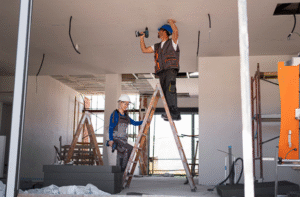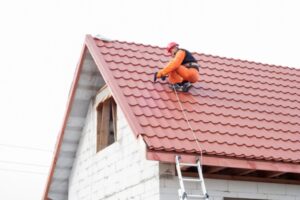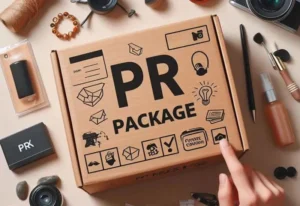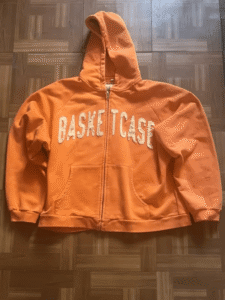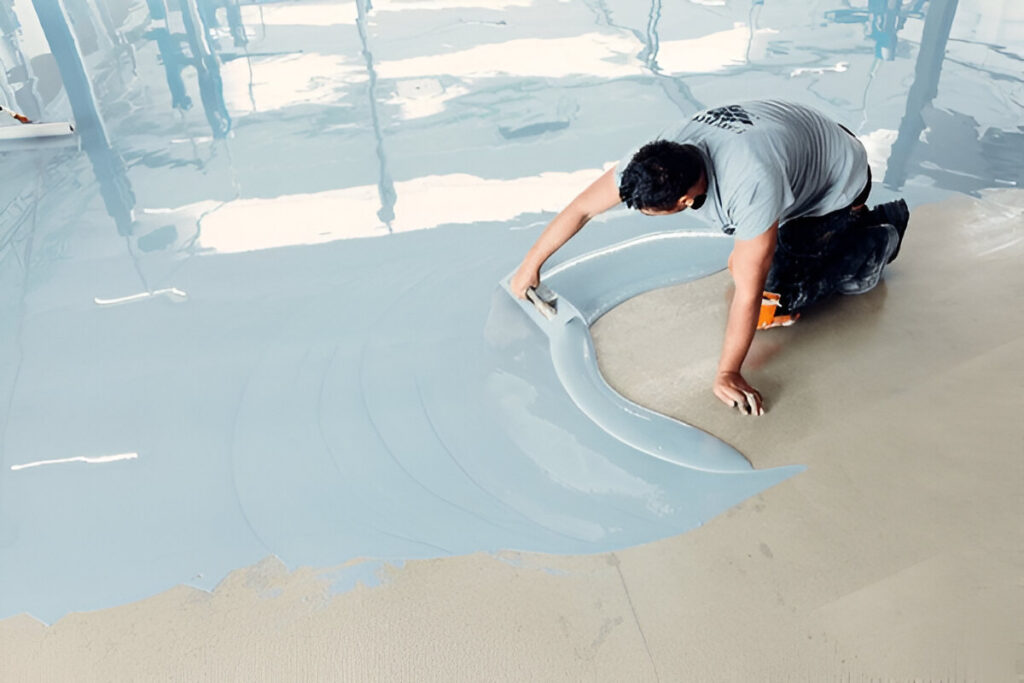
In Pakistan’s growing industrial sector, flooring is more than just a surface — it’s a functional element that directly impacts productivity, safety, and maintenance costs. Whether it’s a pharmaceutical facility, chemical plant, or manufacturing unit, flooring systems must endure heavy loads, resist chemicals, and ensure safe working conditions. However, traditional flooring options like plain concrete or ceramic tiles often fall short when exposed to aggressive environments, frequent cleaning, or high operational demands.
Epoxy flooring offers a resilient and durable alternative, especially tailored to the challenges of industrial settings. Backed by innovations from experienced epoxy resin manufacturers in Pakistan, this solution is rapidly becoming the top choice across sectors. In this article, we explore the science behind epoxy flooring, its competitive advantages, and the vital role of the local manufacturing industry.
What Is Epoxy Flooring?
Epoxy flooring is a thermosetting resin system created by combining epoxy resin with a hardener. This chemical reaction results in a rigid, high-performance plastic surface that bonds tightly with concrete substrates.
Once cured, the surface becomes exceptionally strong, smooth, and resistant to damage. It provides a seamless, joint-free finish that minimizes cracks, resists chemical corrosion, and prevents water seepage. The application process involves surface preparation, primer application, base coat installation, and topcoat sealing—each step engineered to ensure maximum performance and longevity.
Due to these qualities, epoxy flooring is increasingly recommended by epoxy flooring manufacturers in Pakistan for industrial and commercial use.
Benefits of Epoxy Flooring in Industrial Settings
Epoxy flooring offers several advantages that make it ideal for industrial environments:
Chemical Resistance: Industrial spaces often involve exposure to corrosive chemicals, solvents, and oils. Epoxy coatings resist these substances, making them suitable for the pharmaceutical, chemical, and process industries.
Strength and Durability: Epoxy flooring can withstand high traffic, heavy machinery, and mechanical stress without cracking or wearing down, reducing repair costs over time.
Seamless, Dust-Proof Surface: Unlike tiled or concrete surfaces that accumulate dust in joints and cracks, epoxy floors provide a smooth and continuous surface that’s easy to clean and maintain.
Thermal and Fire Resistance: Specialized epoxy formulations can withstand high temperatures and resist ignition, ensuring safety in heat-intensive industrial processes.
Anti-Slip Properties: Epoxy floors can be enhanced with textures or additives to improve traction, helping reduce the risk of workplace slips and falls.
Electrostatic Dissipative (ESD) Features: For electronics or sensitive chemical environments, epoxy flooring can be formulated to prevent the build-up of static electricity.
Faster Installation and Minimal Downtime: With expert application, epoxy floors can be installed quickly, allowing facilities to resume operations sooner.
Long-Term Cost Efficiency: Though the upfront cost may be higher than basic concrete, the reduced maintenance, longer life, and improved safety make epoxy flooring cost-effective in the long run.
Comparison with Other Flooring Materials
Epoxy vs. Concrete
While concrete is a common flooring option, it is porous and prone to absorbing chemicals and moisture, leading to degradation. Epoxy forms an impermeable barrier that resists such infiltration. Maintenance for concrete often includes sealing and patching, whereas epoxy surfaces are much easier to maintain. Epoxy also lasts longer under industrial conditions and offers better resistance to cracking.
Epoxy vs. Tiles
Tile flooring has grout lines that can harbor bacteria and require constant cleaning. These lines are also points of weakness where cracking can begin. Epoxy eliminates such weak points with a seamless surface. Installation time and disruption are also significantly less with epoxy, which bonds directly to the concrete base and cures rapidly.
Epoxy vs. Vinyl
Vinyl may offer initial aesthetic appeal but lacks the heavy-duty resilience of epoxy. It wears down faster, is less chemical-resistant, and doesn’t handle moisture or temperature variations well. Epoxy, on the other hand, offers design flexibility and a more robust performance in demanding environments.
Applications in the Chemical Manufacturing Industry
Chemical manufacturing facilities require flooring that can endure corrosive agents, temperature changes, and heavy-duty machinery. Epoxy flooring meets these demands with its chemical-resistant properties and durable surface.
Epoxy’s non-porous structure prevents leakage or absorption of harmful substances, ensuring workplace safety and compliance with environmental standards. Specialized epoxy systems can be tailored for exposure to acids, alkalis, or solvents, making them ideal for various chemical sectors.
Industries such as pharmaceuticals, petrochemicals, food processing, and textile manufacturing benefit significantly from the high-performance characteristics of epoxy flooring. This is why many chemical facilities rely on epoxy adhesive manufacturers in Pakistan to source compatible bonding agents for structural integrity and safety.
Sustainability and Environmental Benefits
Sustainability is becoming a key decision-making factor for industries. Epoxy flooring contributes to green initiatives in several ways:
Long Life Span: Durable epoxy floors reduce the need for frequent replacements, minimizing material waste.
Low-VOC Formulations: Many modern epoxy systems are low in volatile organic compounds (VOCs), improving air quality and workplace safety.
Energy-Efficient Manufacturing: Local epoxy resin manufacturers in Pakistan are increasingly adopting cleaner production technologies that reduce energy consumption.
Recyclable Content: Fillers and packaging used in epoxy production can be recyclable, contributing to circular economy goals.
ISO 14001 Compliance: Manufacturers following ISO 14001 standards support environmentally responsible practices throughout the lifecycle of epoxy products.
Role of Local Epoxy Industry in Pakistan
Pakistan’s epoxy industry has evolved significantly, with local manufacturers offering world-class products tailored for the country’s unique industrial needs. Epoxy resin manufacturers in Pakistan now produce a variety of resins, hardeners, and additives for custom flooring systems.
Epoxy flooring manufacturers in Pakistan support large-scale installations by offering site-specific assessments, application support, and after-sales services. Local tile bond manufacturers in Pakistan also contribute by providing adhesives compatible with epoxy surfaces, especially in hybrid installations.
Local sourcing provides several advantages:
- Reduced shipping times and lower transportation costs
- On-ground technical support and training
- Rapid response to urgent requirements
- Better cost control and customization options
Most local manufacturers are ISO-certified, ensuring compliance with international quality, safety, and environmental standards.
Conclusion & Call to Action
In conclusion, epoxy flooring offers unmatched performance, reliability, and value for industrial spaces in Pakistan. Its resistance to chemicals, load durability, hygiene, and safety features make it a superior choice over traditional flooring systems.
With strong support from local epoxy resin, flooring, adhesive, and tile bond manufacturers in Pakistan, industries can benefit from tailor-made solutions and responsive customer service.
To learn more about how epoxy flooring can improve your industrial facility, consider contacting certified local manufacturers. Schedule an on-site assessment and request custom formulations that meet your specific operational requirements.
Invest in flooring that delivers strength, safety, and sustainability—choose epoxy.
